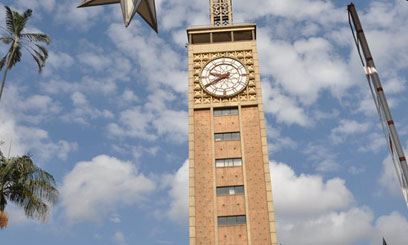 NAIROBI, Kenya, Mar 20- The government has since January this year been illegally collecting tax as the stand off between the Executive and the Legislature over the 2011/12 Finance Bill continues, a Member of Parliament has claimed.
NAIROBI, Kenya, Mar 20- The government has since January this year been illegally collecting tax as the stand off between the Executive and the Legislature over the 2011/12 Finance Bill continues, a Member of Parliament has claimed.
Budget Committee Chairman Elias Mbau argued on Tuesday that the failure to pass the Bill that legalises taxation measures outlined in the June 2011 budget means that the government has no authority to collect the taxes.
“The window which government can use to raise or lower taxes lapsed after six months (after the Bill was proposed which is in December 2011) and so we are saying that whatever taxes that have been collected since January are illegal,” maintained Mbau.
The Treasury has on several occasions failed to present the Bill to Parliament for approval fearing that Members of Parliament will introduce amendments to control lending rates.
The legislators have been adamant that banks must be compelled to lower their interest rates and this can only be achieved by enacting a law that caps them.
Mbau however warned that this impasse exposes the government to legal challenges from Kenyans who may feel aggrieved.
“Kenyans can now be easily mobilised and rightly so to refuse paying taxes because the taxes being collected now are not approved by Parliament,” he warned.
While criticising the Treasury’s failure to show leadership in the whole saga, he expressed MPs’ willingness to find a common negotiated outcome so that the Bill can sail through.
“All the parties need to move from their extreme positions in order to achieve a common ground. This is so crucial because nobody can do this alone regardless of what office one occupies,” the chairman stressed.
While the tax collection could be illegal, the same cannot be said of the spending as some ministries and government agencies could still be utilising some of the 50 percent of the funds allocated to them and which had already been approved by the House.
Should the stalemate continue ministries and parastatals that exhaust money allocated to them are likely to exhaust their cut and hence their operations and ability to deliver services might suffer.
By the close of the 2010/2011 financial year, an audit by the Treasury revealed that the then Interim Independent Boundaries Review Commission had spent all the Sh124 million allocated to it.
Ministries of East African Community and the National Heritage and Culture were also ranked as the best performers and if this trend was maintained, then they are likely to be some of the government bodies whose operations will be hampered by lack of adequate funds.
Mbau spoke on the sidelines of the launch of a micro and macro economic planning tool that will empower Parliament to interrogate data from any of the State agencies such as the Treasury, the Central Bank of Kenya and the Kenya National Bureau of Statistics and make informed policy decisions.
“What that means is that Parliament will not only rely on information or statistics or facts and figures that come from these organisations but as a Parliamentary Budget Office, we are going to assess, process and analyse economic information that comes from across the country or outside it,” the chairman said of the model.
By enhancing the capacity of the Budget Office to scrutinise crucial macro-economic data, MPs will now be able to prepare alternative outcomes such as that of the national budget with a view to comparing it with that submitted by the Treasury to see whether Kenyans are getting the best deal.
Besides enhancing accountability and transparency in the budget making process and equipping lawmakers with the skills to scrutinise any macro-economic information, Deputy Speaker Farah Maalim hoped that the Parliamentary Budget Office Macro-economic model for Policy Analysis and Forecasting would also enable the country to address the perennial problem of budget deficits.
“If we keep on borrowing and keep on failing to balance our own budgets, we keep on leaving our future generations in debts,” Maalim said of the ramifications of the country’s failure to live within its means.


































